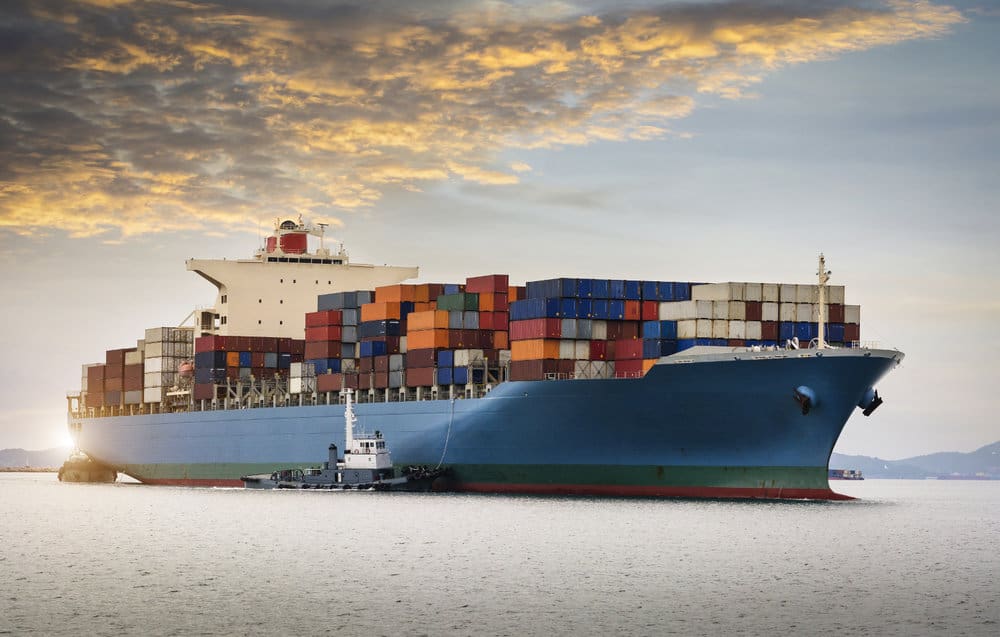
The advocacy for data standardization across the freight and supply chain industry has been voiced across the world, and China is no different to this narrative. The industry is bogged down with numerous stakeholders across the system, creating chaos and bringing in standardization would generate immense economic benefits to the country.
“Blockchain is going to be the core technology of the logistics and transportation industry in the future – especially replacing EDI, which is now widely used across this industry,” said Dale Huang, CTO of COSCO Network e-Logistics. Electronic Data Interchange (EDI) is a process that is ubiquitously used across the industry to communicate information electronically, mostly with regard to bill-of-lading and other invoices.
Huang added that though EDI is a common standard across the ecosystem, used by shipping companies like COSCO, it is an inefficient and a difficult-to-handle technology. “I believe blockchain is the future for coordination between all the parties in the supply chain industry. This could be used between partners, including the customs officers and the service providers in logistics and shipping, while also using it with customers, receivers, consignees, shippers, and other similar parties,” he said.
Huang supported the need for data openness and that parties involved should have a common understanding of the data that can be shared over blockchain. “Data like the container number, the bill of lading number, also the information of the customs officers going through these documents would be useful,” he said. “We need to have a cooperation between the big carriers and the logistics service providers like DHL, FedEx, and Maersk.”
The wheels are already in motion. Maersk in association with IBM is pioneering a proof of concept (PoC) in the shipping business and building a platform using blockchain. “Companies have already raised a discussion that suggests the 5-7 biggest shipping carriers work together on a common standardization through blockchain,” said Huang.
That being said, Huang believed that blockchain adoption still has a long way to go, and that it is largely in the demonstration and testing stage at the moment. Also as intermodal freight transport hubs increase, he suggested that the standardization should go beyond the shipping industry and venture into the railroads and highways ecosystem.
Huang contended that blockchain in logistics should work in phases, with him listing a four-pronged approach. The first stage forms the bedrock to a successful integration of blockchain in the industry – creating a panel which helps with coordination and data sharing, while slowly inching away from complex and inefficient methods like EDI.
The second step is about bringing all the processes in the supply chain under the umbrella of blockchain, making track-and-trace easier. “The processes start even before the cargo moves from the origin. The cargo is prepared first, the product that is shipped is understood to make sure there is quality control and to avoid counterfeit products or cargo loss,” said Huang. Having an unfaltering eye on the end-to-end process helps keep the ecosystem clean from bad actors, which has been a persistent problem with delicate supply chains like the food and pharma industry.
Once tracing is standardized, the next phase would be to look into insurance. “We need to ensure that the whole process is safe. There might be instances of winds or bad weather where the vessel could face trouble, and we need to ensure that insurance for the cargo lost can be claimed,” said Huang.
The final phase is regulating payment processes. Blockchain can vitalize the concept of smart contract to ensure direct payment. This would require connecting with the banking systems and financial organizations, and possibly a revamp of how traditional supply chain financials work.
Huang mentioned that COSCO is serious in its blockchain endeavors and is planning to work together with the different arms of the company – like COSCO Shipping Lines and COSCO Logistics – to create a smart shipping project that includes big data and blockchain.
All said and done, regulating the path of blockchain in the logistics industry should be a collective responsibility. While blockchain is being pushed as a solution to the data incompatibility issues in the industry, it is crucial to understand the harm that proprietary systems could create – the need is not just about creating data standards, but also to make sure it remains open to everyone.
Stay up-to-date with the latest commentary and insights on FreightTech and the impact to the markets by subscribing.
